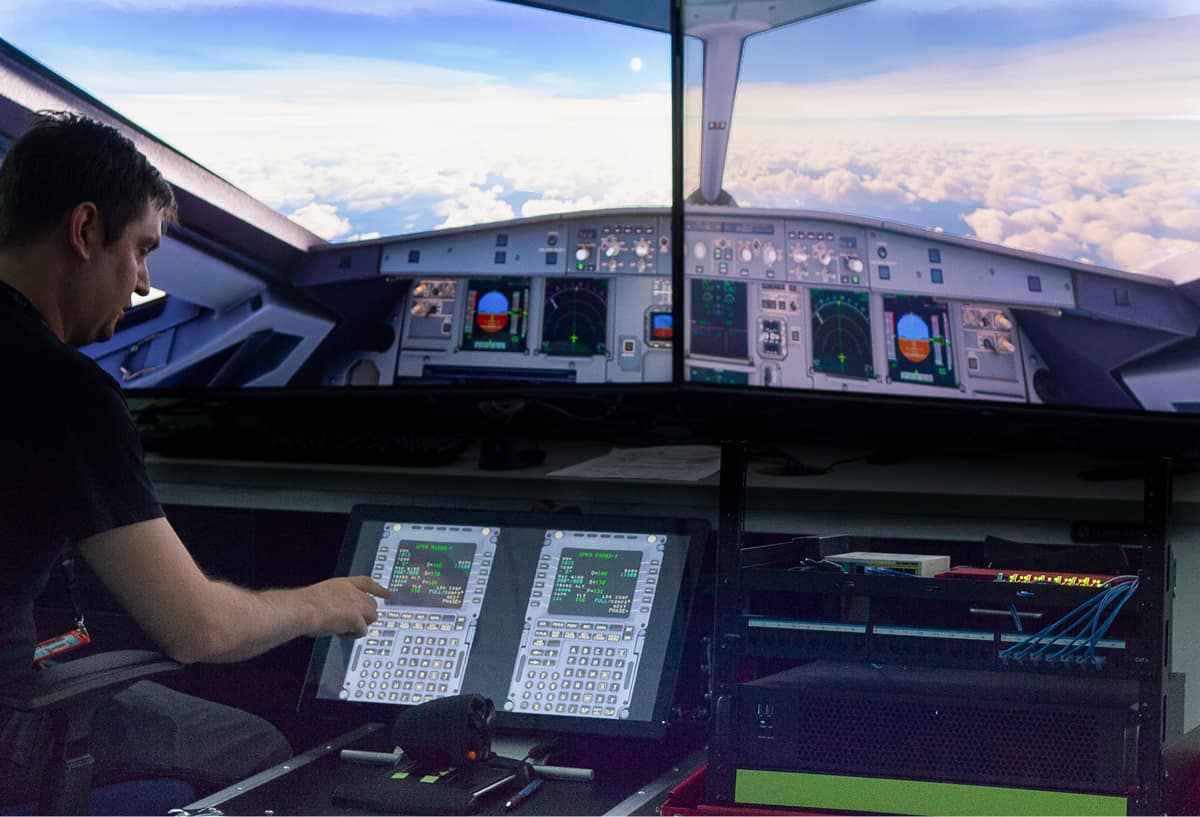FAA Awards Embry-Riddle’s Center for Aerospace Resilient Systems $1.3 Million to Boost Cybersecurity

The Federal Aviation Administration’s Cyber Security Data Science (CSDS) program has awarded a multiyear contract to Embry-Riddle Aeronautical University’s Center for Aerospace Resilient Systems (CARS) in order to conduct research that will assist the aviation industry in the use of cutting-edge data science, artificial intelligence and machine learning for the enhancement of aviation cybersecurity.
“Embry-Riddle is supporting the CSDS’s primary purpose, which is to accelerate the aviation industry’s timely adoption and adaptation of novel CSDS and AI/ML technologies to enhance cybersecurity and increase safety and resiliency for the airline, airport and aircraft elements of the national aviation ecosystem,” said Isidore Venetos, FAA CSDS program manager. “Advanced innovative technology is needed to ensure that safe and efficient methods continue to be the norm for our aviation transportation sector.”
CARS Executive Director Dan Diessner agreed, adding, “This collaboration will better enable the industry to strengthen its proactive and reactive cybersecurity posture, making the broader aviation ecosystem more resilient while maintaining higher safety standards for the flying public.”
The partnership between the FAA and Embry-Riddle began in late 2021 as part of a federal strategy to prevent cyberattacks. The project’s total research funding has reached nearly $3.8 million, with $1.3 million allocated to the current phase. That phase focuses on simulating data from aircraft systems to train AI/ML models, as well as analyzing the impacts of complex cyberattacks on aviation systems in controlled environments without compromising actual operational platforms.
“Real aircraft data is hard to come by and understandably has a number of restrictions on its use and distribution, and training AI/ML takes a lot of data,” said Jayson Clifford, CARS software engineer and technical lead. “We aim to produce a virtual aircraft that is distinct from any real-world aircraft, but still captures a representative aircraft architecture,” which includes the behind-the-scenes network of computer systems and sensors that operate during flight. “We can also simulate cyber events that would be impossible to capture in real-world operational aircraft today to help us prepare for the future.”
Clifford said the work can help develop new cyber-anomaly detection systems and guide how they should be integrated to make sure increasingly connected and complex aircraft are cyber- resilient.
Diessner, who has been the Embry-Riddle lead principal investigator of the research effort since it started, said “this virtual aircraft will add another key aviation ecosystem element to the CARS lab to build out a broad aerospace cybersecurity capability here at Embry-Riddle, in partnership with the FAA, the Department of Defense, the Department of Homeland Security and industry.”
“With a focus on student engagement, this research work will continue to support the CARS vision of inspiring the next generation of aerospace systems professionals through innovative research and education, in collaboration with other universities, governments and the leading aerospace companies around the world,” he added.
Dr. Sean R. Crouse, associate director of CARS and co-principal investigator on the program, reiterated the importance of student involvement.
“This program reflects our commitment to preparing students for leadership roles in cybersecurity and aviation. By engaging students directly in industry-led research, we are equipping them with hands-on experience that not only enhances their education but also contributes to the betterment of the aviation ecosystem as a whole,” Crouse said.
Carlos Castro, CARS director of operations, said that CARS will be launching an internship program this summer, providing Embry-Riddle students with an opportunity to join the research center to work on externally funded research. The FAA CSDS project will be the first undertaken in the program.
Dr. David Harvie, assistant professor in the Department of Applied Aerospace Science of the Worldwide Campus and also a technical lead on the project, said the work will also investigate applying AI/ML methods and cybersecurity data science to maintain the cybersecurity of the entire aviation sector, including airlines, aircraft manufacturers and airports.
"The amount of raw data generated by the aviation ecosystem is too large for humans to effectively analyze,” Harvie said. “CSDS holds the promise of narrowing down which data would be relevant and useful and filtering out the unnecessary data.”
According to Venetos of the FAA, “CARS has taken center stage in coordinating with aviation manufacturers, aviation standards bodies, technology companies, aviation operators, federally funded research and development centers and government agencies to improve the aviation sector’s cyber-resiliency.”

 Michaela Jarvis
Michaela Jarvis